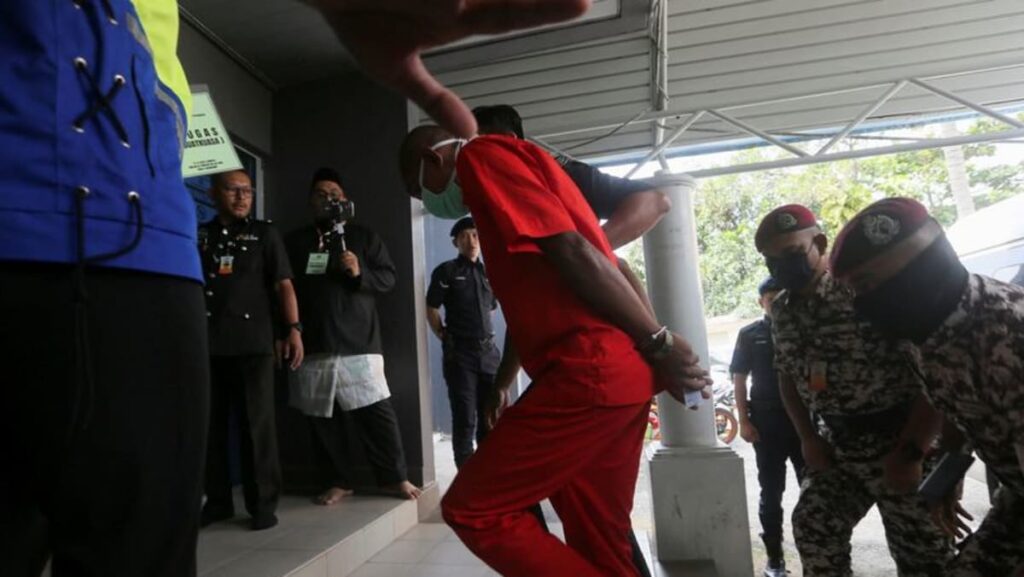KUALA TERENGGANU: A 42-year-old Malaysian man was publicly caned in Terengganu on Friday (Dec 27) for the Islamic crime of khalwat, or close proximity between a man and a woman not related by family ties.
The rare punishment, which has stoked vigorous debate, took place at the Al-Muktafi Billah Shah Mosque in Kuala Terengganu after Friday prayers.
Carpenter Mohd Affendi Awang, a father of five, is the first person to be caned for repeated khalwat offences under Terengganu’s amended Syariah Criminal Offences (Takzir) Enactment 2022, which came into effect on Jan 1, local media reported.
He was sentenced to six lashes on Nov 20 by Terengganu Syariah High Court Judge Kamalruazmi Ismail.
He pleaded guilty to committing khalwat with a 52-year-old woman at a house in Pengkalan Ranggon village, Kemaman at 1.40am on June 16. It was his third time being caught for the offence.
He was also fined RM4,000, with six months’ jail in lieu if the fine is not paid.
Affendi’s caning is the second reported public caning case in Terengganu.
The first was in 2018 when two women were caned six times in the state’s High Court for attempting to have sex in a car.
Like the 2018 case, Affendi’s caning has sparked debate, with opponents slamming the act as dehumanising and barbaric.
“DEGRADING” PRACTICE OR PREVENTION OF “MORAL DECAY”?
Since his sentencing last month, various groups have urged the state government to reconsider the practice and review laws to ensure that they are proportionate, rehabilitative and respectful of human dignity.
“We reiterate our unwavering stance against all forms of corporal punishment, including caning or whipping, as they are inherently cruel, inhumane and degrading,” said Malaysian Bar president Mohammad Ezri Abdul Wahab in a statement on Thursday (Dec 26).
“Malaysia aspires to be a nation respected for its adherence to human rights standards, yet allowing public caning contravenes international human rights principles,” the statement read.
Women’s rights group Sisters in Islam (SIS) earlier called on the Terengganu religious authorities to stop the “dehumanising” and “barbaric act”.
“The punishment serves no meaningful purpose in justice or moral reform,” the group said in a statement on Nov 22, questioning the appropriateness of carrying it out at a mosque.
SIS also criticised the justification of public caning as a form of “education” and said it is in stark contrast with “Islam’s core principles of justice, compassion, mercy and the preservation of human dignity”.
On Sunday (Dec 22), a group called G25, made up of prominent retired civil servants, said the punishment is a violation of both federal and syariah laws and called on Prime Minister Anwar Ibrahim to intervene in the matter.
The same sentiment was echoed by the Human Rights Commission of Malaysia (Suhakam), which argued that the Terengganu Syariah High Court has exceeded its jurisdiction conferred by federal law through the Syariah Courts (Criminal Jurisdiction) Act 1965 (Act 355).
According to Suhakam, Act 355 only permits caning, not public caning.
“It also makes us question whether true justice is being served in this case, especially when the offender’s five children could be emotionally harmed by the public spectacle of their father’s punishment,” G25 added in its statement, as quoted by Free Malaysia Today.
https://www.channelnewsasia.com/asia/malaysia-terengganu-public-caning-close-proximity-khalwat-debate-4828091


